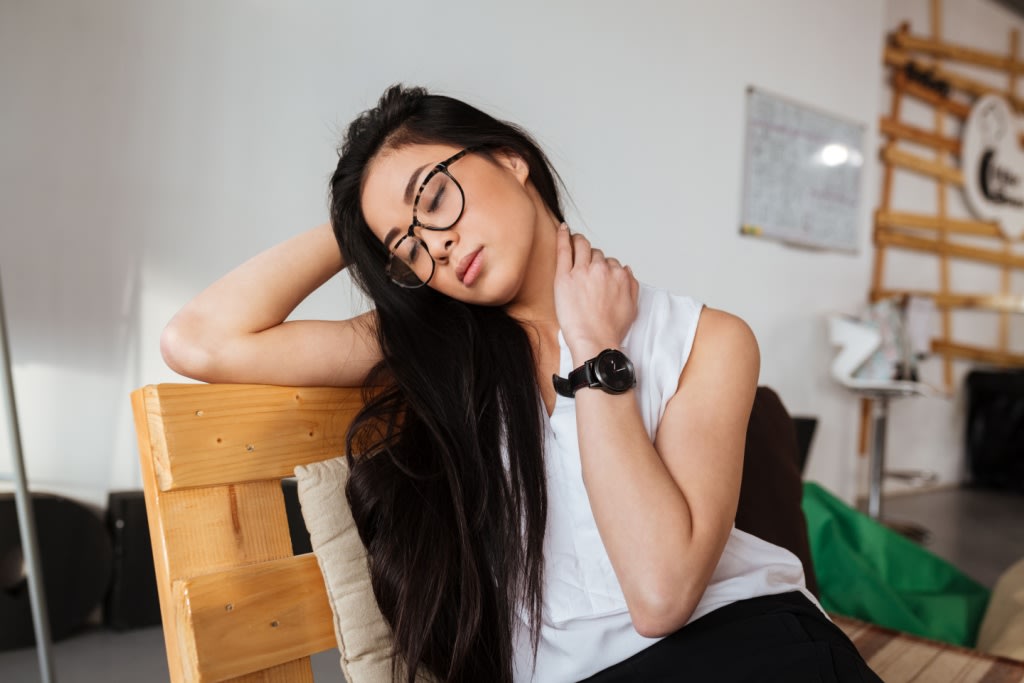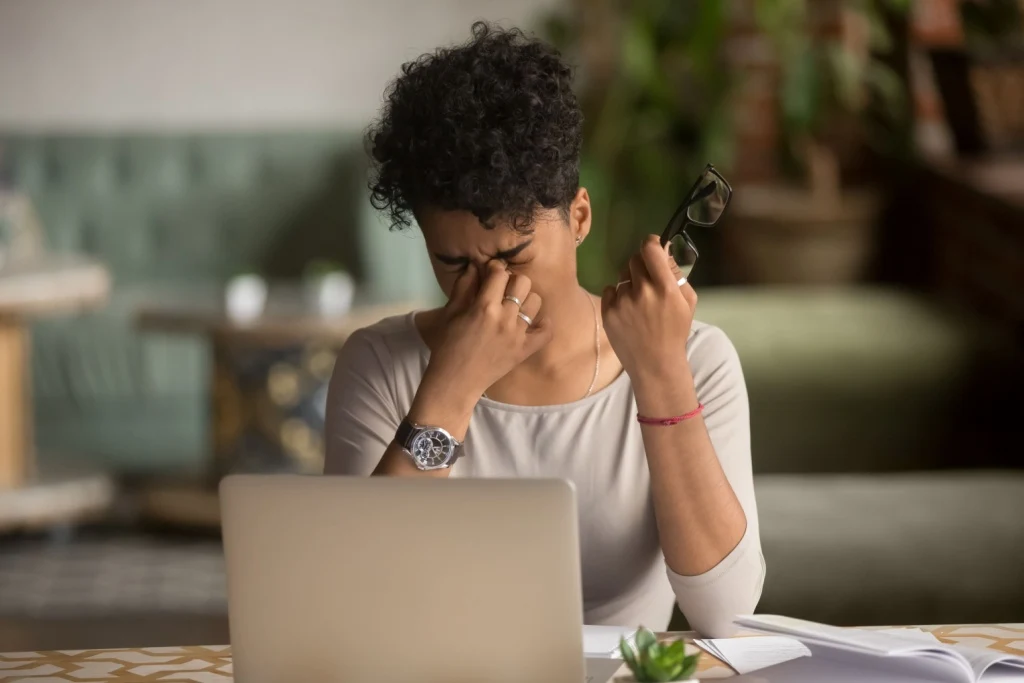Red Flags That Indicate You Need More Sleep
The body really does keep the score when it comes to your sleep and a good night's rest is so much more than a nice to have when it comes to your wellbeing.

April 12, 2024 - Updated April 12, 2024

Sleep should always be a top priority on your self-care list. Yes, even above your workouts. While we love the idea of you waking up to your morning alarm and smashing out a Sweat session, we ultimately want your habits to be sustainable and beneficial. We want to see you working out with energy and focus, not weighed down by exhaustion.
Sleep is a basic human need essential for many bodily functions, restorative processes and your overall wellbeing, but when so many of us struggle to get enough quality sleep, it pays to know the telltale symptoms that indicate you might need a little more.
What defines a lack of sleep?
Experiencing a bad night’s sleep every now and then isn’t anything to stress about - it’s completely normal and can be caused by a wide variety of factors. When it can become a problem and start to affect your daily functioning is if you’re struggling to get enough sleep for consecutive nights, weeks or months in a row.
Despite experts recommending adults sleep for 7-9 hours per night, The Sleep Foundation says about a third of American adults sleep fewer than six hours each night. While you might know you’re suffering from a lack of sleep and be able to point to the effects it’s having on you, doctors often diagnose long term sleep deprivation or insufficient sleep syndrome if a person meets six criteria. These include:
Falling asleep during the day
Sleeping less than what is recommended for your age group most nights for at least three months
Waking up due to an alarm when you could continue sleeping
Having symptoms that resolve with more sleep
Experiencing symptoms that aren’t caused by another condition or medication.

What causes a lack of sleep?
While missing out on precious hours of shut-eye can be caused by something as simple as not going to bed early enough, there are many other barriers that can get in the way, even if you are getting into bed at a good hour.
People may struggle to get enough quality sleep due to shift work, parenting or caring responsibilities, caffeine, alcohol, drugs, exercising too close to bedtime, illness, pain, hormonal changes, noise or light disruptions, or even sleeping in a new environment.
As the Cleveland Clinic says, having a few odd nights here and there where you don’t have a good sleep is common and not a reason to feel concerned - it’s when it becomes an ongoing issue that your health can start to pay the price.
What are the symptoms of a lack of sleep?
Not getting your forty winks can show up in many different ways depending on how long you’ve gone without. After a poor night’s sleep (or a few), the most obvious symptom is - of course - feeling tired and perhaps as if you could doze off while going about your daily activities. The Sleep Foundation says you may also experience changes such as:
Reduced alertness
Impaired cognitive function
Slower reaction times
Difficulty concentrating
Emotional changes, such as increased levels of irritability or anxiety
More severe symptoms can include headaches, hand tremors, drooping eyelids, trouble speaking, hallucinations, impaired judgment or even microsleeps - where you fall asleep for a few seconds.
When a lack of sleep becomes a consistent issue, it can start to have a much wider impact on your life. According to the National Heart, Lung & Blood Institute and the Cleveland Clinic, a sleep deficiency actually changes activity in some parts of the brain. It can start to interfere with your work or studies, productivity, problem-solving, socialising, driving, headaches, athletic performance, immunity, mental health, and is also linked to higher risk of many chronic health conditions such as heart disease, diabetes, stroke, obesity, depression and high blood pressure.
Sleep isn’t for the weak, it’s for the wise.

Why does a lack of sleep affect your body’s performance?
A lack of sleep and great athletic performance are definitely no match made in heaven. The body undergoes many restorative and repair processes during sleep that help your body recover and rebuild between workouts, and feeling tired, slow or unable to concentrate can also be dangerous if you’re lifting heavy equipment, performing movements that require coordination or exercising in a busy gym.
We have such admiration for anyone with strong discipline and commitment to their fitness, but if it means working out exhausted or consistently sacrificing sleep to exercise - not so much. We always want you to be exercising with energy and focus and giving love back to your body with plenty of rest.
Tips to avoid sleep deprivation
If you’re not getting enough sleep and starting to feel it, the best place to start is usually by getting your sleep habits in order. If nothing is helping or your symptoms are severe, it’s always best to consult your healthcare provider for advice.
Some simple steps that can promote better sleep include:
Go to bed and wake up at the same time every day
Work backwards from your wakeup time to figure out when you need to be in bed to get 7-9 hours of sleep
Create a relaxing bedtime routine at least an hour before bed
Have a cool, dark, quiet bedroom with comfortable bedding
Daily exercise (providing its not costing you sleep)
Avoid late afternoon or evening naps
Avoid stimulants such as caffeine or alcohol in the afternoons and evenings
Turn off your devices at least 30 minutes before bed and keep them out of the bedroom if possible.
Nod off with ease
Getting a good night’s sleep isn’t always easy or possible, but there are plenty of ways you can optimise your routine as much as you can for some quality shut-eye. At the end of the day, better wellbeing and being well-rested go hand in hand.

Erin is a writer and editor at Sweat with years of experience in women's publishing, the fitness industry, media and tech. She's passionate about the power of movement, and you can often find her on a yoga mat, a hike, a dance floor, in the ocean or the gym.
* Disclaimer: This blog post is not intended to replace the advice of a medical professional. The above information should not be used to diagnose, treat, or prevent any disease or medical condition. Please consult your doctor before making any changes to your diet, sleep methods, daily activity, or fitness routine. Sweat assumes no responsibility for any personal injury or damage sustained by any recommendations, opinions, or advice given in this article.
Wellbeing